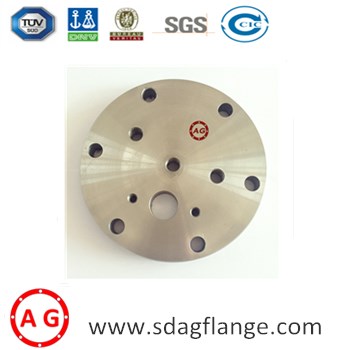Ensuring Precision in ASME Standard Pipe Fitting Flanges Through CNC Machining
2024-07-01
In the world of manufacturing, precision is paramount, especially when it comes to producing components that must adhere to stringent industry standards. ASME (American Society of Mechanical Engineers) standard pipe fitting flanges are critical components in various piping systems, requiring exact dimensions and impeccable quality to ensure reliable and safe operations. CNC (Computer Numerical Control) machining has become a cornerstone in achieving this level of precision. This blog delves into how CNC machining ensures precision in the manufacturing of ASME standard pipe fitting flanges.
The Importance of Precision in ASME Standard Pipe Fitting Flanges
ASME standard pipe fitting flanges are used to connect pipes, valves, pumps, and other equipment to form a piping system. These flanges must meet rigorous specifications to prevent leaks, maintain pressure integrity, and ensure the safety and efficiency of the system. Any deviation from the required dimensions can lead to significant issues, including system failures, costly repairs, and safety hazards.
How CNC Machining Ensures Precision
1. Computer-Aided Design (CAD) Integration
The precision of CNC machining begins with computer-aided design (CAD) software. Engineers create detailed 3D models of the pipe fitting flanges, specifying exact dimensions and tolerances. These digital blueprints are crucial as they guide the CNC machines in executing the machining process with high accuracy. The CAD models ensure that every aspect of the flange is meticulously planned and accounted for before actual production begins.
2. Automated and Repeatable Processes
CNC machining is highly automated, reducing the potential for human error that can occur with manual machining. Once the CAD design is loaded into the machine, the CNC system controls the entire machining process. This automation ensures that each flange is produced to the exact specifications, consistently replicating the design with minimal variation. The repeatability of CNC machines is vital for maintaining the high standards required for ASME pipe fitting flanges.
3. High-Precision Cutting Tools
CNC machines are equipped with high-precision cutting tools that are capable of achieving fine tolerances. These tools, such as end mills, drills, and lathes, are designed to cut through various materials with extreme accuracy. The precision of these tools ensures that the dimensions of the pipe fitting flanges are exact, meeting the ASME standards for thickness, diameter, and surface finish.
4. Advanced Control Systems
The control systems in CNC machines play a critical role in ensuring precision. These systems use sophisticated algorithms and real-time feedback to monitor and adjust the machining process. Any deviations from the desired dimensions are detected and corrected instantly, ensuring that the final product adheres to the specified tolerances. This advanced control capability is essential for producing high-quality ASME standard pipe fitting flanges.
5. Multi-Axis Machining
CNC machines often feature multi-axis capabilities, allowing them to perform complex machining operations in a single setup. This capability is particularly beneficial for creating intricate features and maintaining precise dimensions on pipe fitting flanges. Multi-axis machining reduces the need for multiple setups and manual adjustments, minimizing the risk of errors and ensuring uniformity across all produced flanges.
6. Real-Time Monitoring and Quality Control
CNC machining systems are equipped with sensors and monitoring devices that provide real-time data on the machining process. This continuous monitoring ensures that any issues are detected and addressed immediately. Additionally, many CNC systems are integrated with quality control software that can perform inspections and measurements during the production process. This integration ensures that each flange meets the ASME standards before it is completed.
Conclusion
CNC machining is a critical technology for ensuring the precision required in the production of ASME standard pipe fitting flanges. Through the integration of computer-aided design, automated processes, high-precision cutting tools, advanced control systems, multi-axis capabilities, real-time monitoring, and consistent material handling, CNC machines can produce flanges that meet the stringent specifications set by the ASME. This precision is essential for the safety, reliability, and efficiency of piping systems across various industries. By leveraging the capabilities of CNC machining, manufacturers can consistently deliver high-quality pipe fitting flanges that perform reliably in the most demanding applications.



